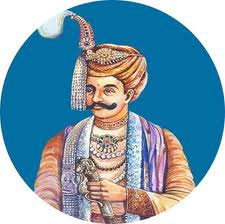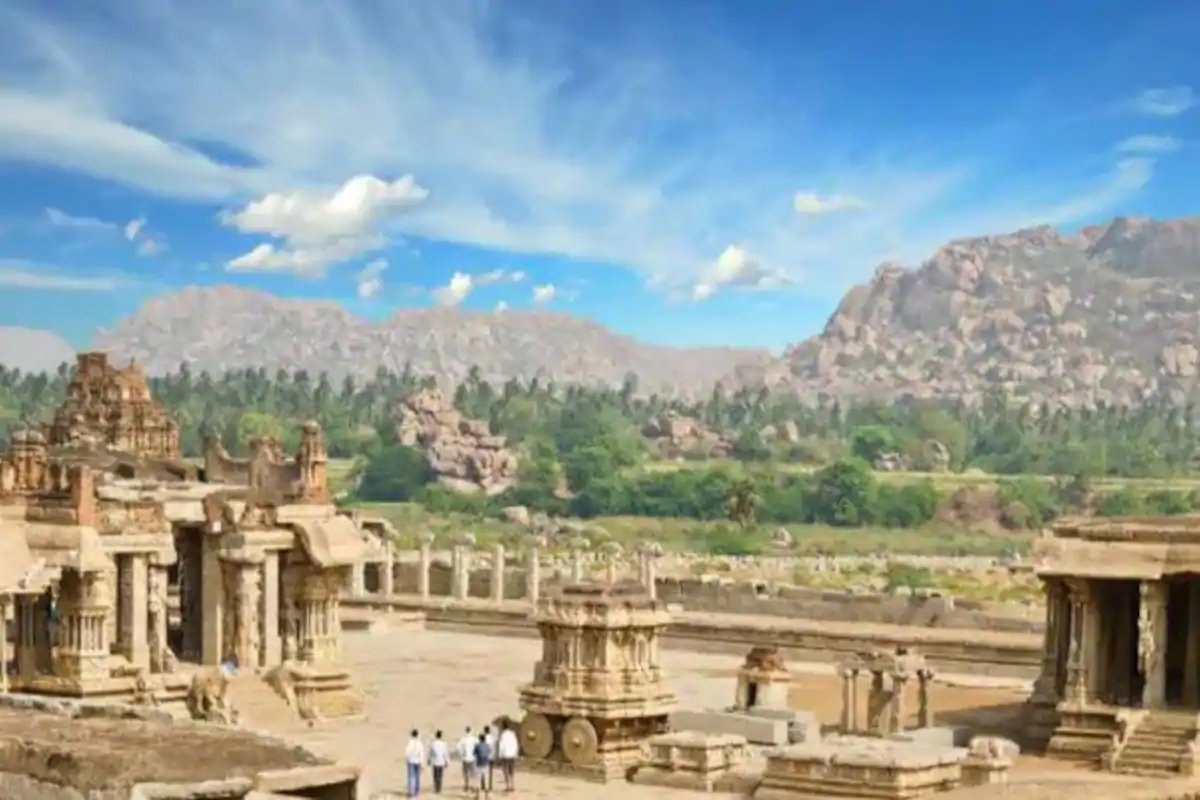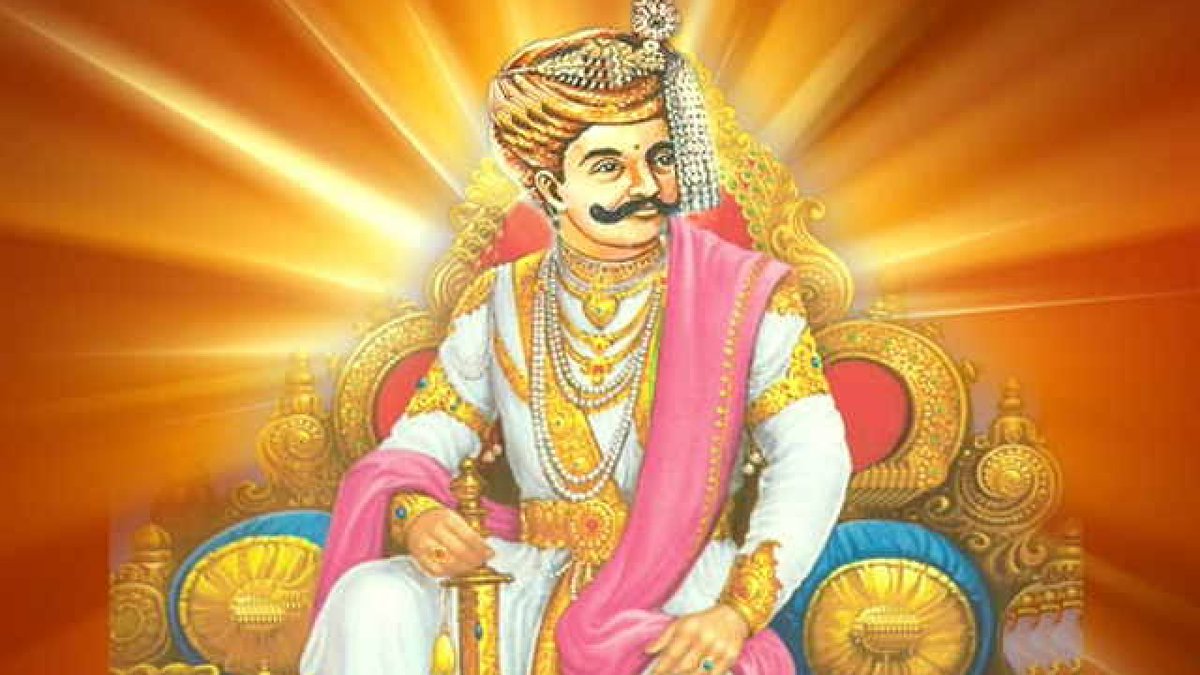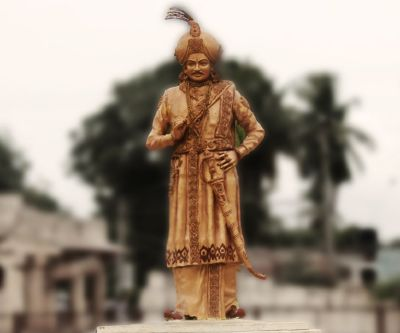Thread on "Krishnadevaraya"
Krishnadevaraya had been born to parents Nagala Devi and Tuluva Narasa Nayaka,[2] an army commander under Saluva Narasimha Deva Raya, who later took control of the empire to prevent it from disintegration.
Krishnadevaraya had been born to parents Nagala Devi and Tuluva Narasa Nayaka,[2] an army commander under Saluva Narasimha Deva Raya, who later took control of the empire to prevent it from disintegration.
He built a beautiful suburb near Vijayanagara called Nagalapura in memory of his mother. The king& #39;s coronation took place on the birthday of Lord Krishna.
Krishnadevaraya revered Timmarusu his prime minister as a father figure.
Krishnadevaraya revered Timmarusu his prime minister as a father figure.
He was a just and able statesman and a crafty general. He was a worthy opponent to the Badami kings and to the Portuguese who were in their quest to expand the boundaries of their empire.
Vijayanagar started a new era by setting up a modern city with major town planning which included drainage system, canals, irrigation systems and many more of which some are functional even till date.
Krishnadevaraya is also known as Andhra Bhoja and Kannada Rajya Ramana in honour of his victories and conquests of lands in the Krishna-Tungabhadra basin. He built the Vithalaswamy temple and the Hazar Rama Temple in the Hoysala style of architecture.
Krishna Deva spent the first 10 years of his reign solidly establishing his authority over his subordinate chieftains and governors while fending off invasions from the northeast.
The king was known to change battle plans abruptly and turn a losing battle into victory.
His main enemies were the Bahamani Sultans (who, though divided into five small kingdoms, remained a constant threat), the Gajapatis of Odisha, -
His main enemies were the Bahamani Sultans (who, though divided into five small kingdoms, remained a constant threat), the Gajapatis of Odisha, -
-- who had been involved in constant conflict since the rule of Saluva Narasimha Deva Raya and the Portuguese, a rising maritime power which controlled much of the sea trade.
The annual affair of the raid and plunder of Vijayanagar towns and villages by the Deccan sultans came to an end during the Raya& #39;s rule.
Krishnadevaraya& #39;s armies clashed with the Sultan Samshuddin Zafar Khan of Bijapur and the Sultan Mahmud were severely injured and defeated.
Krishnadevaraya& #39;s armies clashed with the Sultan Samshuddin Zafar Khan of Bijapur and the Sultan Mahmud were severely injured and defeated.
Yusuf Adil Khan was killed and the Raichur Doab was annexed. Taking advantage of the victory, the Raya reunited Bidar, Gulbarga, and Bijapur into Vijayanagar and earned the title "establisher of the Yavana kingdom" when he released Sultan Mahmud and made him de facto ruler.
The Sultan of Golconda Sultan Quli Qutb Shah was defeated by Timmarusu, who was the prime minister of Sri Krishnadevaraya.
He defeated many local rulers like the Dharanikota Kammas, who were feudatory rulers of the Gajapathis, and the rebellious Ummatur Chiefs. In 1516-1517, Krishnadevaraya pushed beyond the Godavari river.
The Gajapatis of Odisha ruled a vast land comprising Andhra region, Odisha. Krishna Deva Raya& #39;s success at Ummatur provided the necessary impetus to carry his campaign into Coastal Andhra region which was in control of the Gajapati Raja Prataparudra Deva.
The Vijayanagar army laid siege to the Udayagiri fort in 1512. The campaign lasted for a year before the Gajapati army disintegrated due to starvation. Krishna Deva Raya offered prayers at Tirupati thereafter along with his wives Tirumala Devi and Chinnama Devi.
The Gajapati army was then met at Kondaveedu, where the armies of Vijayanagara, after establishing a siege for a few months, began to retreat due to heavy casualties.
Then, Timmarusu, upon discovering a secret entrance to the unguarded eastern gate of the fort, launched a night attack that culminated with the capture of the fort and the imprisonment of Prince Virabhadra, the son of Gajapati Emperor Prataparudra Deva.
Krishnadevaraya planned for an invasion of Kalinga, but the Gajapati Emperor, Prataparudra, was made privy to this plan. Prataparudra formulated his own plan to defeat Krishandevaraya and the Vijayanagara Empire.
The confrontation was to happen at the fort of Kalinganagar. But the wily Timmarusu secured the information of Prataparudra& #39;s plan by bribing a Telugu deserter, who was formerly under the service of Prataparudra. When the Vijayanagara Empire did invade,
Prataprudra was driven to Cuttack, the capital of the Gajapati empire. Prataparudra eventually surrendered to Vijayanagara Empire, and he gave his daughter, Princess Jaganmohini, in marriage to Sri Krishnadevaraya.
Krishandevaraya returned all the lands that the Vijayanagara Empire captured to the North of the Krishna River; this made the Krishna river boundary between the Vijayanagar and the Gajapati Kingdoms.
Krishnadevaraya established friendly relations with the Portuguese, who set up the Portuguese Dominion of India. The Emperor obtained guns and Arabian horses from the Portuguese merchants. He also utilized Portuguese expertise in improving water supply to Vijayanagara City.
he complicated alliances of the empire and the five Deccan sultanates meant that he was continually at war. In one of these campaigns, he defeated Golconda and captured its commander Madurul-Mulk, crushed Bijapur and its Sultan Ismail Adil Shah
The highlight of his conquests occurred on 19 May 1520 where he secured the fortress of Raichur from Ismail Adil Shah of Bijapur after a difficult siege during which 16,000 Vijayanagara soldiers were killed.
The exploits of the military commander, Pemmasani Ramalinga Nayudu of the Pemmasani Nayaks, during the Battle of Raichur were distinguished and lauded by Krishnadevaraya. It is said that 700,000-foot soldiers, 32,600 cavalry, and 550 elephants were used in the Battle of Raichur.
Finally, in his last battle, he razed to the ground the fortress of Gulburga, the early capital of the Bahmani sultanate. His empire extended over the whole of South India.
In 1524, Krishnadevaraya made his son Tirumala Raya the Yuvaraja (crown prince). The prince did not survive for long: he was poisoned to death. Suspecting the involvement of Timmarusu, Krishna Deva Raya had his trusted commander and adviser blinded.
At same time Krishnadevaraya was preparing for an attack on Belgaum, which was in the Adil Shah& #39;s possession. Around this time, Krishnadevaraya took seriously ill. He died soon after in 1529. Before his death, he nominated his brother, Achyuta Deva Raya as his successor.
During his reign he kept a strict control over his ministers, and any minister who committed misdeeds was dealt with severely. He abolished some of the obnoxious taxes such as the marriage fee. To increase revenues, he brought new lands under cultivation by ordering deforestation
A large-scale work to obtain water for irrigation around Vijayanagar was also undertaken by him. Foreign travelers, such as Paes, Nunez and Barbosa, who visited Vijayanagar spoke highly of the efficiency of administration and prosperity of the people during his reign.
Paes summarises "The king maintains the law by killing." Offenses against property (designed to maintain stability) and for murder ranged from cutting of a foot and hand for theft and beheading for murder (except for those occurring as a result of the duel).
Paes could not estimate the size of Vijaynagar as his view was obscured by the hills but estimated the city to be at least as large as Rome. Furthermore, he considered Vijayanagara to be "the best provided city in the world" with a population of not less than half a million.
The administrative languages of the Empire were Kannada and Telugu. Kannada was a popular literary medium, reaching its peak under the patronage of Krishnadevaraya.
He was of the opinion that the King should always rule with an eye towards Dharma. His concern for the welfare of the people is amply proved by his extensive annual tours all over the empire and tried to redress the grievances of the people and to punish the evil doers.
The Portuguese Chronicler Domingo Paes praises Krishna Deva Raya as, "the most feared and perfect King… a great ruler and a man of much justice".
The administrative languages of the Empire were Kannada and Telugu. Kannada was a popular literary medium, reaching its peak under the patronage of Krishnadevaraya.

 Read on Twitter
Read on Twitter![Thread on "Krishnadevaraya"Krishnadevaraya had been born to parents Nagala Devi and Tuluva Narasa Nayaka,[2] an army commander under Saluva Narasimha Deva Raya, who later took control of the empire to prevent it from disintegration. Thread on "Krishnadevaraya"Krishnadevaraya had been born to parents Nagala Devi and Tuluva Narasa Nayaka,[2] an army commander under Saluva Narasimha Deva Raya, who later took control of the empire to prevent it from disintegration.](https://pbs.twimg.com/media/EZZ2OnIVAAEqlSU.jpg)






